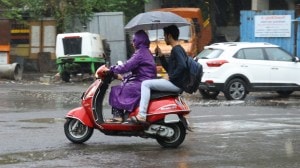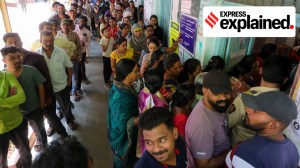- India
- International
How 17th Lok Sabha performed: One-third of Bills passed under an hour, record suspensions, lengthy interruptions
The Lower House held 274 sittings in five years, the fewest for a full-term Lok Sabha. It also referred 16% of Bills to standing committees for scrutiny, well below the 60% and 71% when UPA 1 and 2 governments were in power.
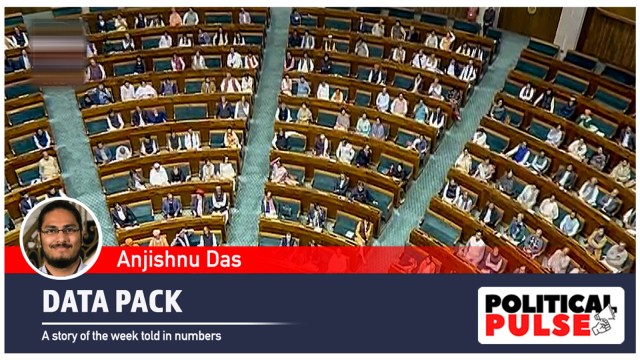 The number of sittings peaked at 37 in the Budget Session last year but it was one of the least productive ones, functioning for just 33% of the scheduled time. (PTI Photo)
The number of sittings peaked at 37 in the Budget Session last year but it was one of the least productive ones, functioning for just 33% of the scheduled time. (PTI Photo)From the passage of some key and controversial Bills, many after little to no discussion, to the move to the new Parliament building where MPs were suspended in record-high numbers, the curtains have fallen on the 17th Lok Sabha.
As the focus starts shifting towards the parliamentary elections, here are the highlights of the 17th Lok Sabha and the numbers behind them, as per data from the Lok Sabha and PRS Legislative Research.
Productivity
Since the first Lok Sabha convened between 1952 and 1957, the number of sittings has consistently declined over the years. While the first Lok Sabha convened for an annual average of 135 days across all sessions, the 16th and 17th Lok Sabhas (of the NDA government) met for 66 and 55 days per year. The number of sitting days was marginally higher in the UPA I and II eras, at 66 and 71 days per year, respectively.
During the term of the 17th Lok Sabha, legislators met for 15 sessions, including curtailed sessions during the Covid-19 pandemic and the Special Session last September. The 17th Lok Sabha kicked off with a productive Budget Session in 2019, with 25 sittings and working overtime for 135% of the scheduled time. The number of sittings peaked at 37 in the Budget Session last year but it was one of the least productive ones, functioning for just 33% of the scheduled time.
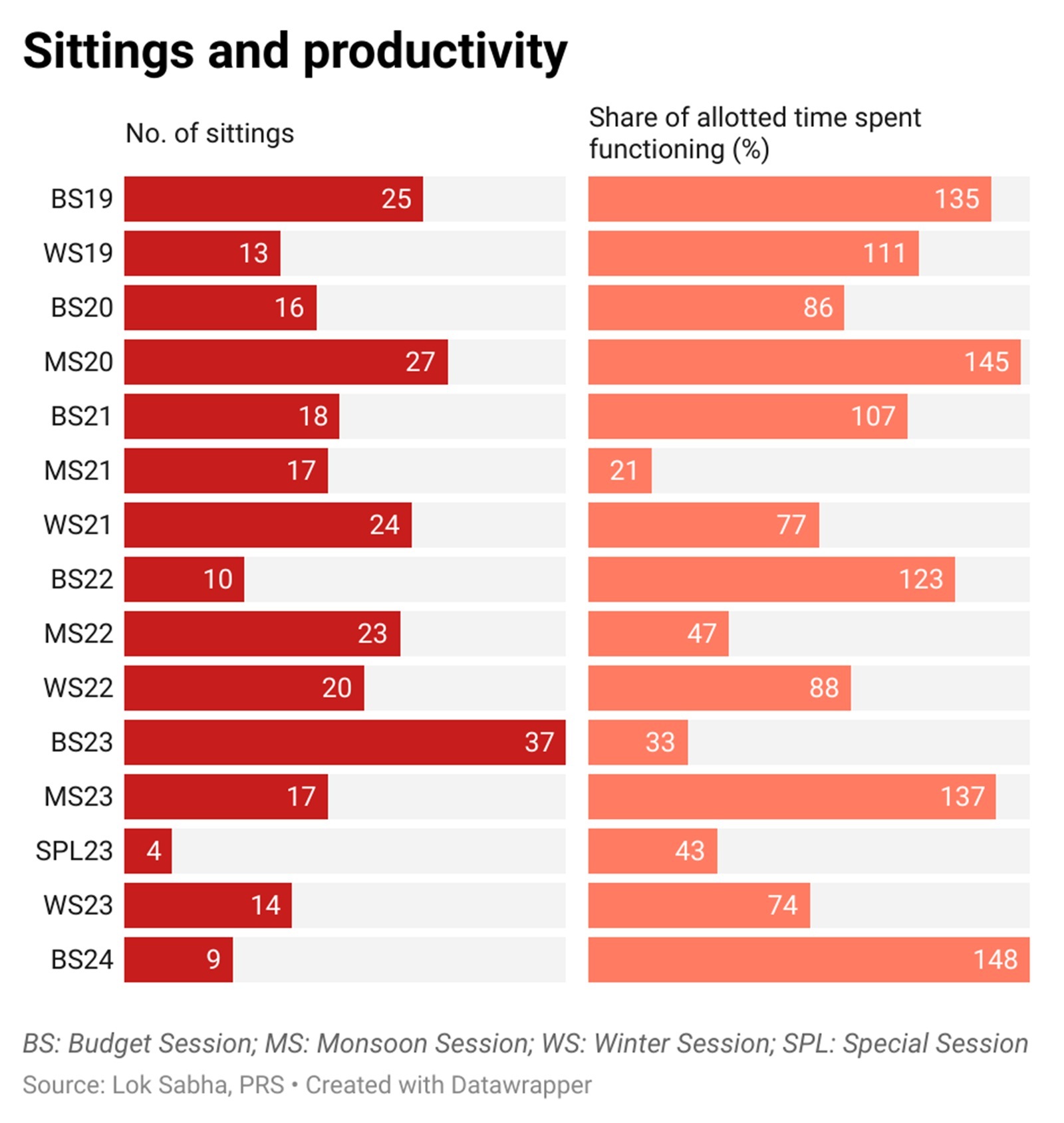 Sittings and productivity
Sittings and productivity
At a total of 274, just the four Lok Sabhas that were dissolved before the end of their five-year terms held fewer sittings than this one.

In terms of hours spent working, particularly discussing and passing Bills, there was a marked decline during the 17th Lok Sabha. From 281 total hours of work and 125 hours spent on Bills in the 2019 Budget Session, the Lok Sabha’s working hours fell to 62 overall and 37 on Bills in the 2023 Winter Session.
Over the 15 sessions of this Lok Sabha, just four spent 35 hours or more on discussing and passing Bills. In the 2023 Budget Session, the Lok Sabha spent just over an hour on discussing and passing legislation.
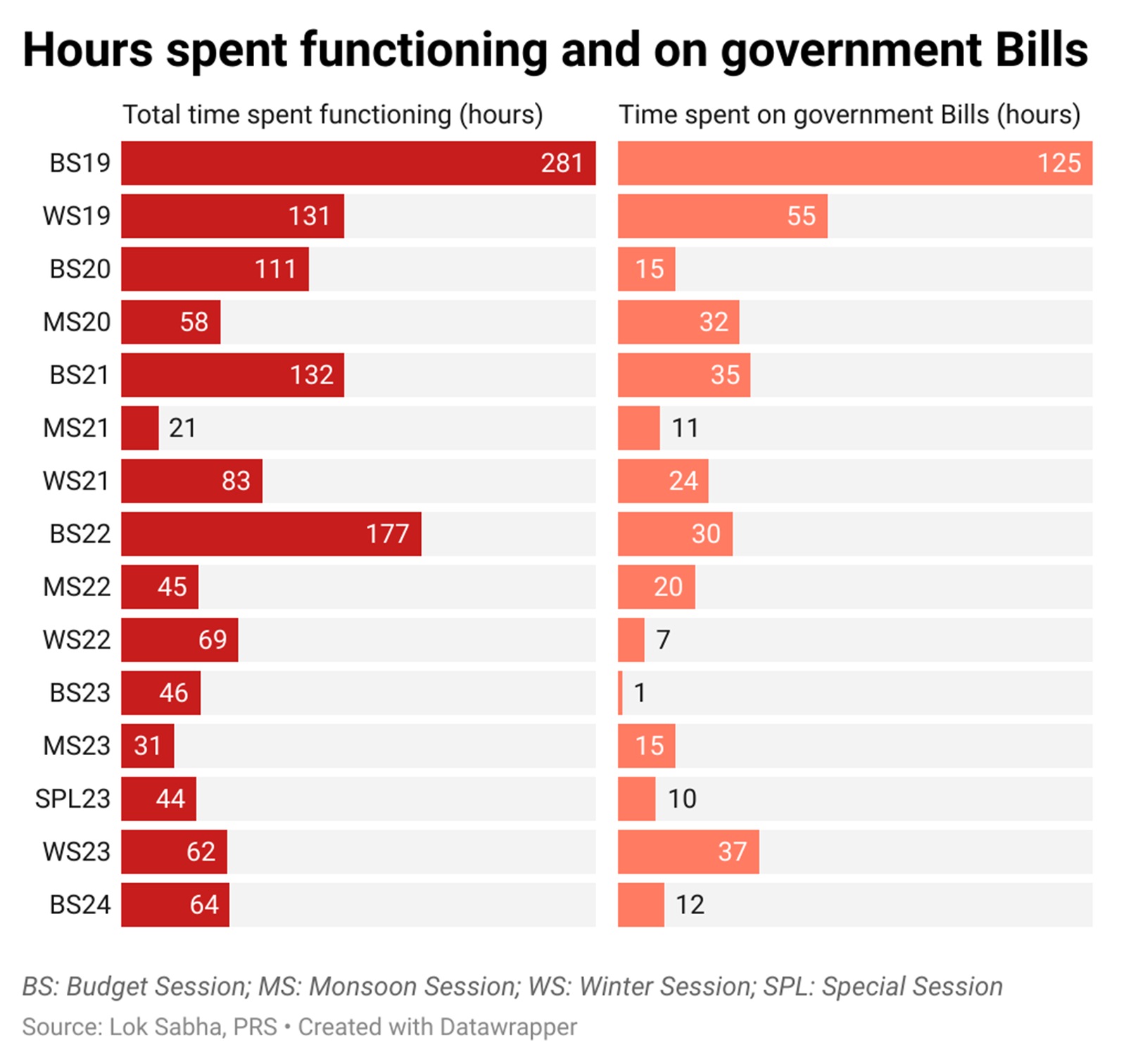 Time spent functioning and on government Bills
Time spent functioning and on government Bills
Bills passed
Across its 15 sessions, the number of Bills introduced and passed by the 17th Lok Sabha gradually declined. While 35 Bills were passed in the 2019 Budget Session, the highest for this term, and as few as six in the 2023 Budget Session.
A total of 221 Bills were passed in the 17th Lok Sabha, up from 180 in the previous one. However, more than a third of them were passed with less than an hour of discussion, 13% with 1-2 hours of discussion, 22% with 2-3 hours, and 30% with more than 3 hours of debate. Just 16% of the Bills were referred to standing committees for further scrutiny, declining from 28% in the previous Lok Sabha and well below the 60% and 71% when the first and second UPA governments were in power.
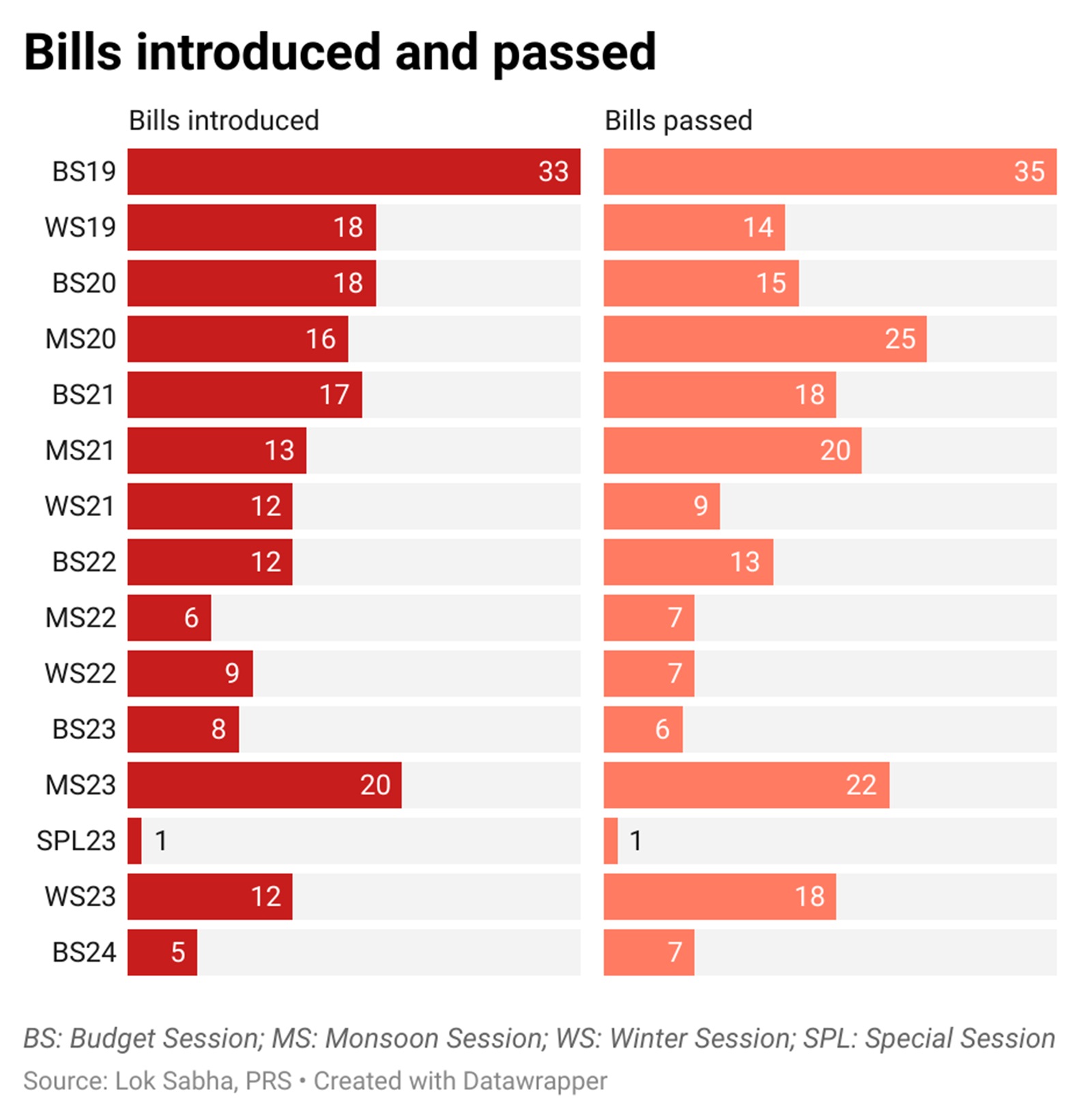 Bills introduced and passed
Bills introduced and passed
Apart from the abrogation of Article 370, during this term Parliament passed Bills to ban triple talaq and amend the Citizenship Act. It also cleared three controversial farm laws, which triggered year-long protests by farmers’ groups across north India until the laws were eventually repealed. The Centre and the Delhi government clashed over a Bill that diluted the administrative powers of the elected government and placed them with the Centrally appointed Lieutenant Governor. The Chief Election Commissioner and Other Election Commissioners Bill, which changed the composition of the appointing panel by replacing the Chief Justice of India with a Union Minister, was also passed. Among the other landmark Bills passed by the 17th Lok Sabha are the three new laws to overhaul the existing criminal codes and the Women’s Reservation Bill.
Interruptions, walkouts and suspensions
It wasn’t all smooth sailing in Parliament though. All but two sessions of the 17th Lok Sabha witnessed lengthy interruptions and walkouts staged by members of the Opposition.
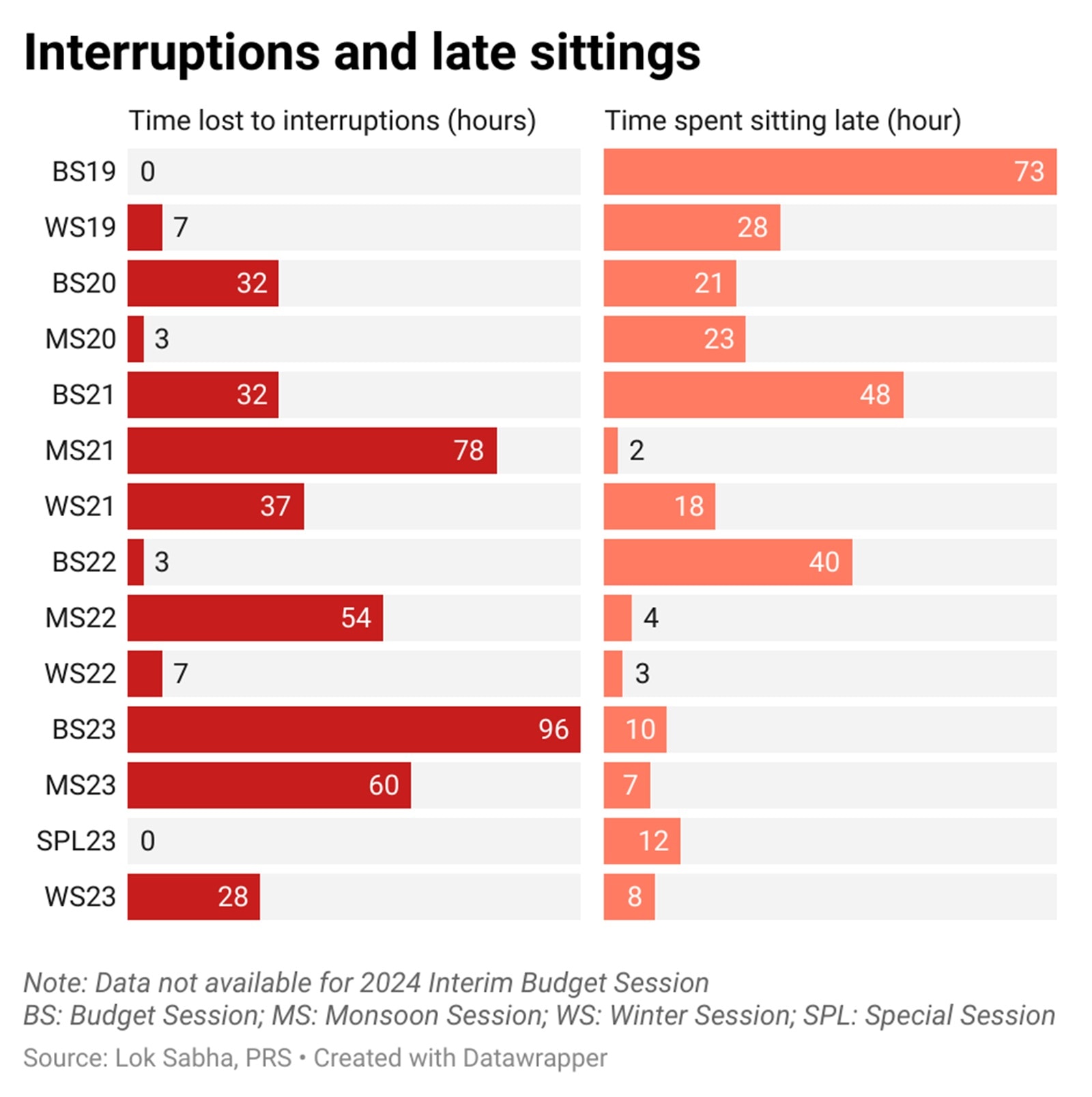 Interruptions and late sittings
Interruptions and late sittings
In the 2023 Budget Session, the House lost 96 hours to interruptions and adjournments, the highest for this Lok Sabha. In total, 435 hours were lost to interruptions since the first session. The highest instances of walkouts came in the first Budget Session at 30, followed by 19 in the 2022 Budget Session.
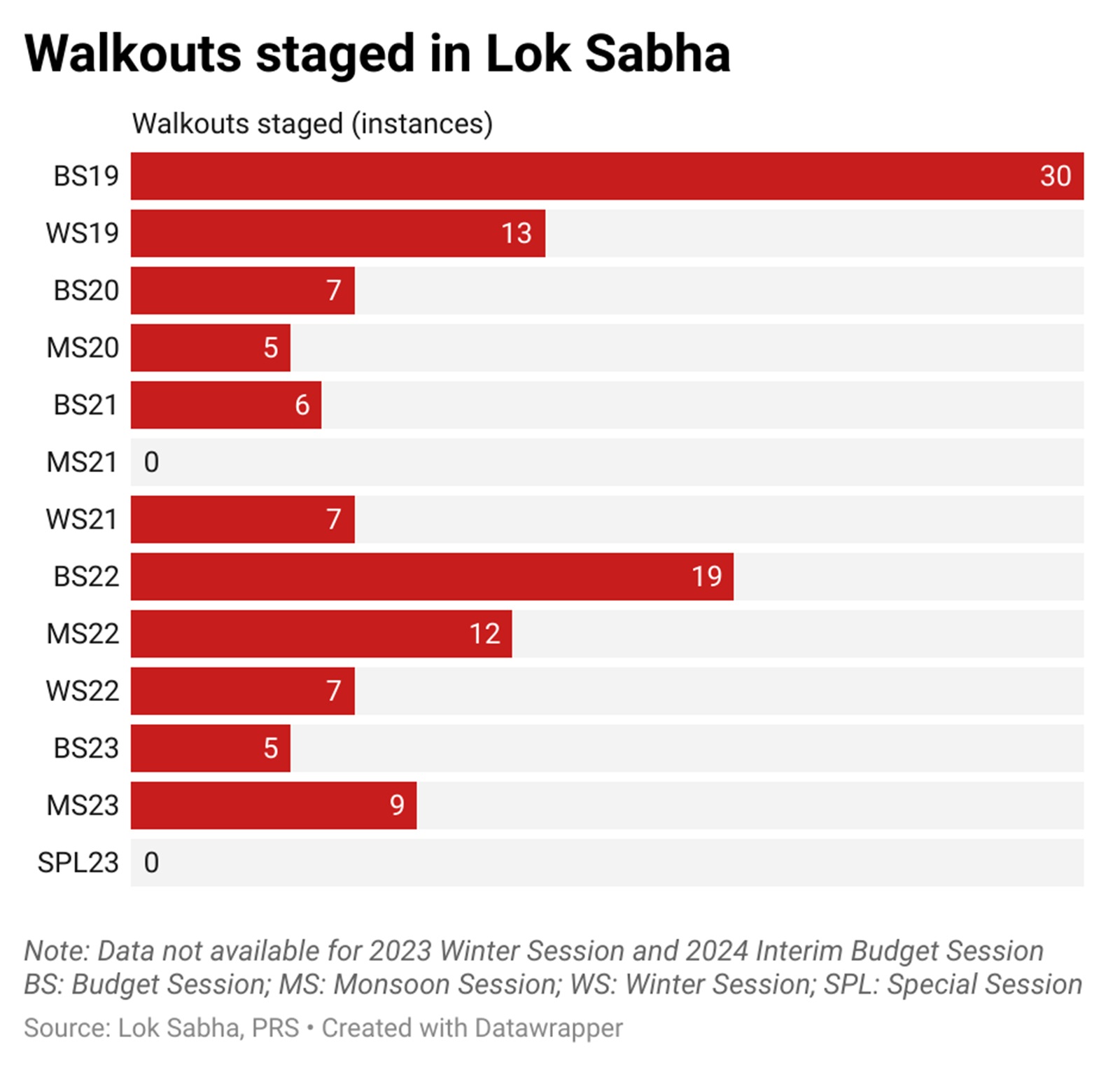 Walkouts
Walkouts
To make up for lost time and ensure legislative and other business was completed, the House spent a total of 300 hours sitting late over the past five years, including for 73 hours in the 2019 Budget Session.
The 17th Lok Sabha also set the record for most MP suspensions at 115, with 100 of those coming in the 2023 Winter Session during which members of the Opposition protested against the government’s refusal to discuss the security breach that saw two intruders jump into the House and toss gas canisters.
The previous Lok Sabha saw the second-highest total suspensions at 81. Before that, the eighth Lok Sabha during the Congress’s rule from 1984 to 1989 had seen the most suspensions at 66.
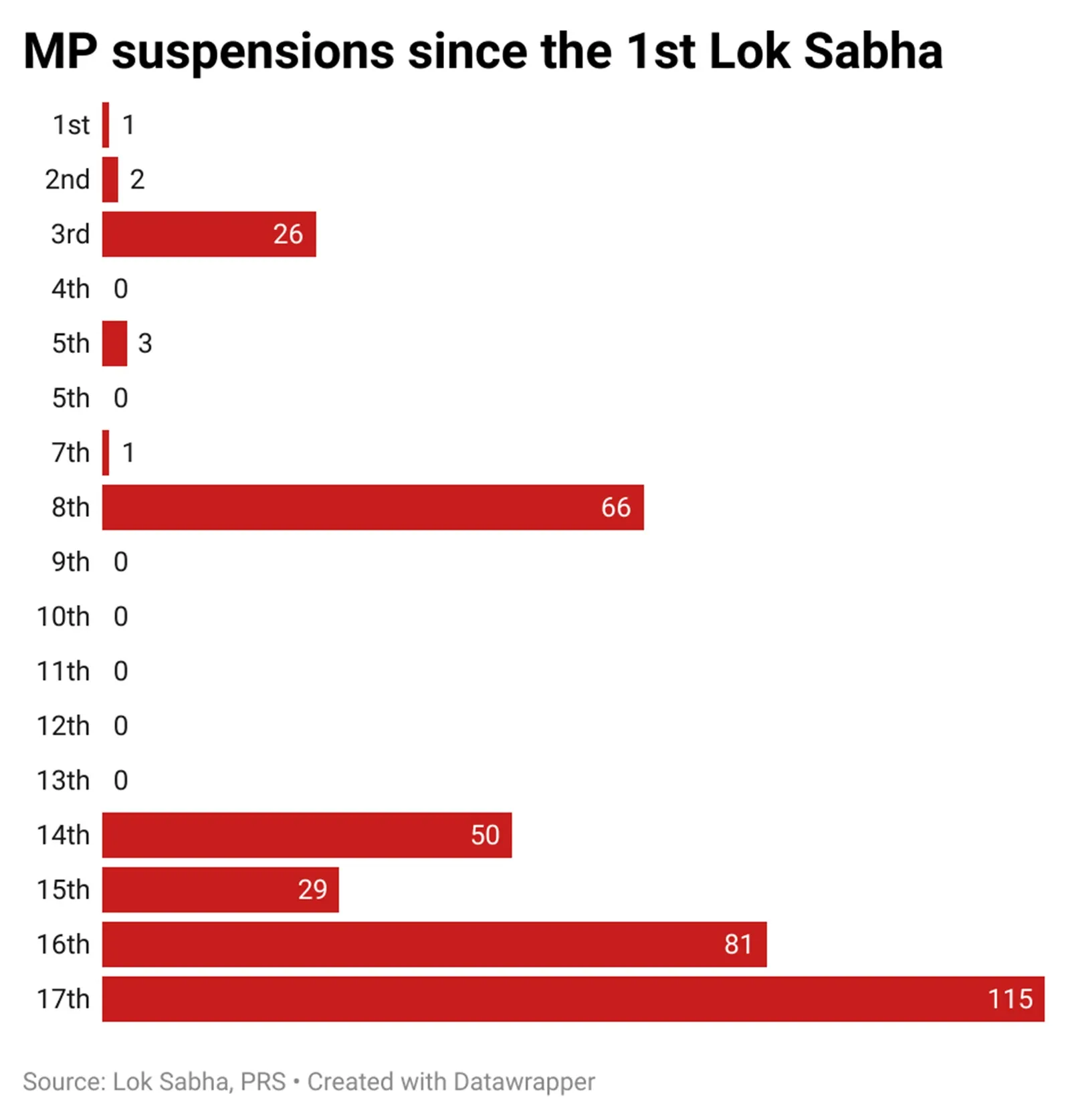 Suspensions
Suspensions
This Lok Sabha was also notable for the absence of a Deputy Speaker. Despite the Constitution mandating the election of a Speaker and Deputy Speaker, the 17th Lok Sabha was the first to go an entire term without a Deputy Speaker.
The Monsoon Session in 2023 also saw the only no-confidence motion in this Lok Sabha, and the second against the Modi government. Both times, the ruling BJP had enough votes to win.
Performance of MPs
On average, MPs had a 79% attendance record, down marginally from 80% in the previous House. More than two-thirds of MPs attended more than 80% of the session. Even in the sessions held during the Covid-19 pandemic, average attendance did not fall below 69%. The highest average attendance was in the 2023 Special Session.
The highest attendance, at 100%, was recorded by three first-time BJP MPs – Bhagirath Chaudhary from Rajasthan, Sunita Duggal from Haryana and Mohan Mandavi from Chhattisgarh.
The average MP participated in 45 debates over five years. BJP MP Pushpendra Singh Chandel was the most active MP, participating in 1,261 debates, followed by the Congress’s Kuldeep Rai Sharma from Andaman and Nicobar Islands at 834. The only other MP to participate in more than 500 discussions was the BSP’s Malook Nagar who took part in 606 debates. Notably, actor-politicians Sunny Deol of the BJP and Shatrughan Sinha of the TMC were among nine Lok Sabha members who did not participate in any debate.
While the average MP asked 199 questions in Parliament, 21 did not ask a single question and 25 asked more than 500 each. BJP MP Sukanta Majumdar, the party’s West Bengal state president, asked the most questions at 654, followed by Shiv Sena MP Shrirang Appa Barne and BJP MP Sudhir Gupta at 635 each.
May 13: Latest News
- 01
- 02
- 03
- 04
- 05






